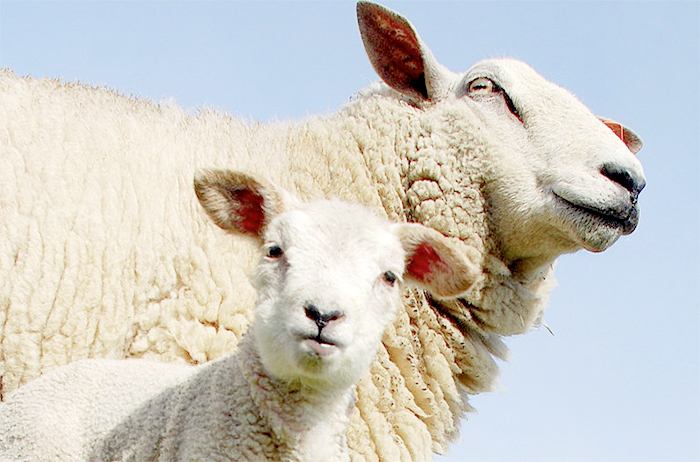
Concerns about the subdued trade in lamb this autumn have been expressed by NFU Cymru Meirionnydd Chairman, Trefor Hughes who was acting on behalf of hill farmers 'justifiably worried' about the market situation.
"With the peak marketing period for many hill sheep producers approaching, the disappointingly low prices for finished and store lambs is worrying. This comes on top of the worst spring in living memory and the increasing input costs of feed, fertiliser and fuel," he said.
Price per kilo for lightweight and super-lightweight lambs has been well below the average price for those lambs with higher weights that reach supermarket specification. This is partly due to throughput. Generally in GB auction markets, the volume of light lambs (25.5kg to 32kg) in September were up 20 per cent on last year while super lightweight lambs (17kg to 25.4kg) were over 75 per cent higher than normal.
Hughes said: "We recognise that the Muslim festival of Eid al-Adha, which falls in mid-October this year, has slightly strengthened prices this week. However what we want is a more long-term solution to the marketing of lambs in these weight categories. Keeping heavier breeds to get heavier carcasses is not an option on hill farms in Meirionnydd.
"Meirionnydd NFU Cymru has been in contact with Hybu Cig Cymru (HCC) to discuss the current situation and we are pleased to learn that there is still good demand for small lamb carcasses in the southern European market and that the recent advertising campaign for Welsh Lamb has boosted lamb sales. Members are very keen to explore what more can be done to develop the UK market for these smaller lambs during this time of year in particular."
Another factor accounting for difficult trading conditions has been the closure of the Welsh Country Foods plant on Anglesey earlier this year.
"Welsh Country Foods were a significant buyer of light lambs in north Wales having built up good domestic and export markets. Losing this plant has no doubt had an impact both on competition for this type of lamb and in available slaughtering capacity. In our opinion it is certainly one of the factors behind the subdued trading conditions we now find ourselves in.”
"Competition, demand and finding a range of markets is paramount to securing our future as sheep farmers. We applaud HCC’s work in building export markets and in promoting our lamb at home and abroad. We look to this good work continuing to build sales in both quantity and value terms through both traditional and new markets."
The NFU raised concerns about lamb prices earlier this year, "With lamb prices having been at their lowest for three years the situation for farmers has been made worse by rising production costs due to the extreme weather" said NFU Cymru's livestock board chairman Lyndon Edwards in March.
Farmers are losing £29 on average for every lamb they sell at market after new figures revealed farm gate prices have dropped by a fifth in the past year.
"This challenge is not just a UK issue, it is putting sheep farmers all over Europe under pressure and we are committed to standing with our European counterparts to address it" said NFU livestock board chairman Charles Sercombe.
Sercombe told delegates that sheep prices and margins on sheep farms have been put under severe pressure due to the disrupted marketing season brought on by the weather and the challenge of cheap imports.
He also outlined that following a UK farming unions summit last week, the organisations have called for European wide meetings in early March.
"We must promote lamb around the EU. But we must also look at the New Zealand lamb quota situation."
"The last real change to the quota was back in 1994 and the processing industry has made significant changes since then. It's important the Commission looks at the value of imports coming into the EU and not just the tonnage."
"We're calling on the European Commission to help promote lamb across the EU and address our concerns regarding the outdated quota regime."
NSA Chief Executive Phil Stocker said lambs were growing at a far slower rate due to last years' poor weather.
"The weather last summer and autumn resulted in lambs growing far slower than normal and this has delayed the normal seasonal peak of production by six to eight weeks" he said.
